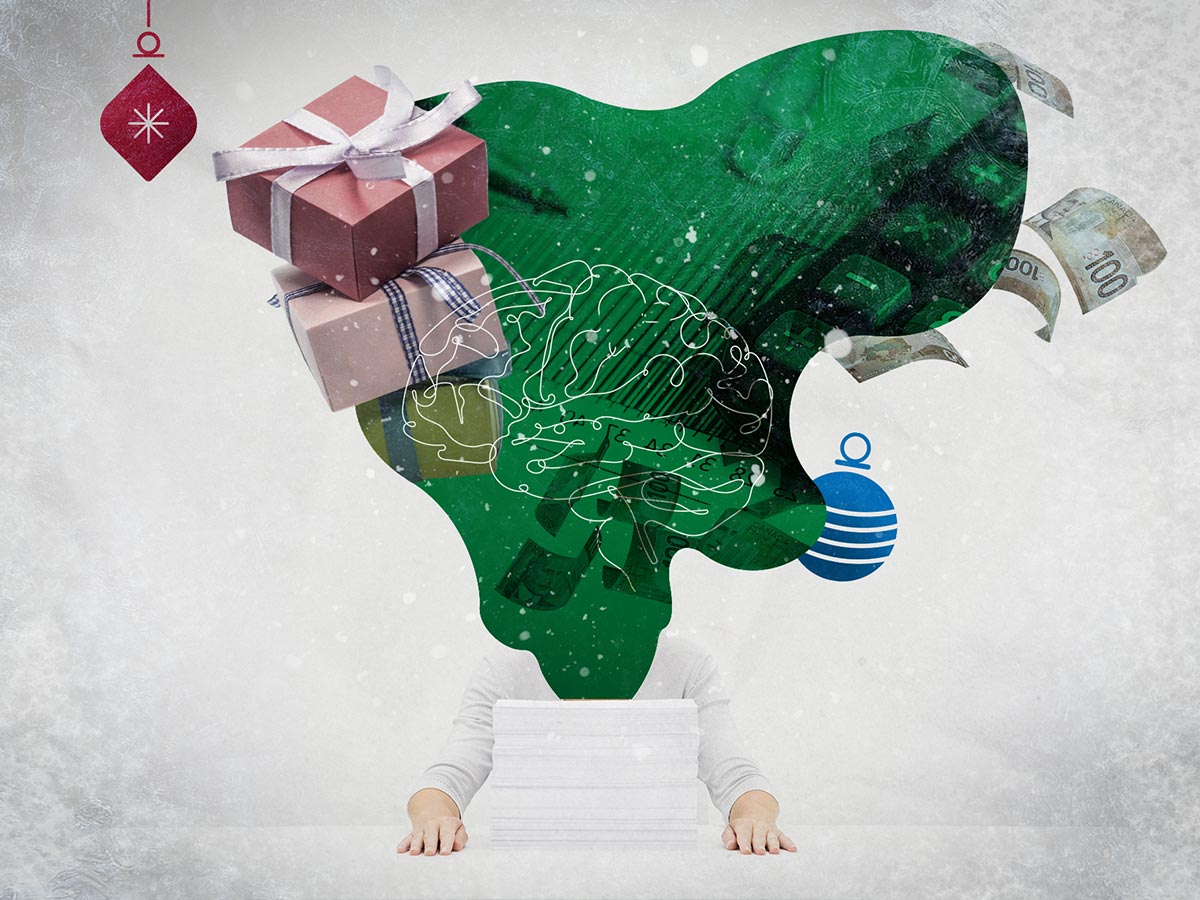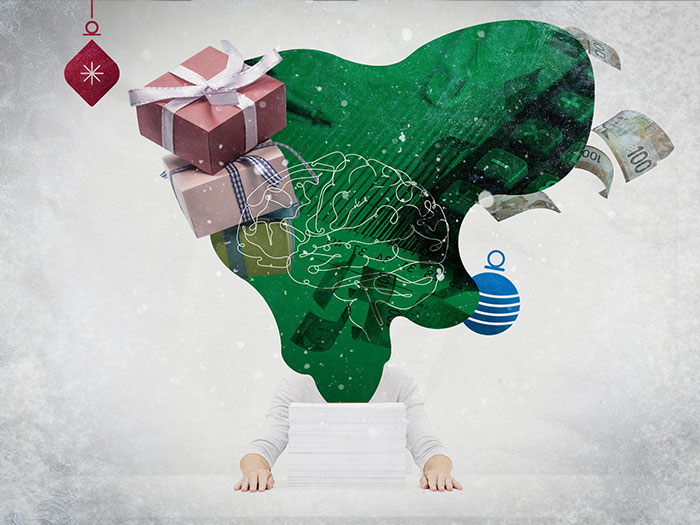
How to take care of your mental health this holiday season
 Mental-health concerns during the pandemic, such as stress and depression, will continue to rise as we get closer to the holidays, experts say.
Mental-health concerns during the pandemic, such as stress and depression, will continue to rise as we get closer to the holidays, experts say.
When COVID-19 shutdown began in March, many Canadians expected to be back to their routines by September. But, as the second wave persists, holiday plans are looking much like the previous nine months: distanced.
Fluctuating pandemic protocols have increased stress and depression, experts say. And those mental-health concerns will continue to rise as we get closer to the holidays.
“We definitely are encountering high levels of people describing their mental health as either bad or very bad, higher than is the average,” says Jack Jedwab, president and CEO of ACS-Metropolis, which runs COVID-19 Social Impacts Network. According to a November survey conducted by the network, 63 per cent of respondents reported their mental health to be in the lower portion of the five-point survey, showing a larger number of people self-reporting mental-health concerns. Respondents have also been reporting greater concern for family members’ well-being as a significant stressor.
Here are four things we can do to better the situation.
1. ESTABLISH A SUPPORT SYSTEM
Those who are self-reporting mental-health challenges due to COVID-19 are also reporting difficulty in accessing support services because the demand is so high, Jedwab says. “The alternative is for people to have family, friends or others they can reach out to,” he says. “And you’re seeing the sort of growth in the telehealth movement where you can go and get online support.” Wellness Together Canada is one such program; the Government of Canada initiative aims to provide free support for Canadians around the clock.
If you live on your own or know someone who does, Jedwab recommends creating a small bubble with proper safety precautions to ensure no one is alone. Although some people cannot physically be together, they can still support each other emotionally, whether through technology or visiting outdoors and distanced, says Keith Dobson, author and psychology professor at the University of Calgary. “Keep your social contact as much as you can,” he says.
2. BE AWARE OF YOUR MOOD
This holiday season creates the perfect storm of stressors, says Dobson. He notes that uncertainty is one of the three psychological factors associated with increased stress, anxiety and depression. The second stressor is controllability (the ability to control a situation) and the third is importance (the more important something is, the more preoccupied your mind will be), says Dobson.
Our inability to plan due to changing regulations causes additional worry. “So [the pandemic’s] got all three of the triple threat, so to speak, for anxiety and depression,” says Dobson. “[We need to] watch what we’re saying to ourselves. And, if we find that we’re shifting other thoughts to the dark side, just stop and ask ourselves, ‘What’s going on?’ and seek help if needed.”
With winter around the corner, he suggests venturing outside to get as much natural sunlight as possible. He also suggests following your usual holiday routines—within reason—by decorating your house, sending holiday cards and hosting Zoom dinners. While the current social restrictions may cause some people to feel angry and resentful, Dobson says to be mindful of why these protocols are in place and of the importance of adhering to them even when it’s challenging.
3. CONNECT WITH YOUR WORK COMMUNITY
Early holiday festivities often begin in the workplace but, this year, many employees are working from home and gatherings are prohibited. From an employer perspective, Chuck Bruce, CPA and CEO of financial management firm Provident10, says it’s important to engage with colleagues and create a sense of connection.
“Leverage any support programs that you as an employer offer to your employees and to remind them that they don’t necessarily have to be experiencing a trauma or a struggle in order to reach out,” he says.
Establishing community, even though distanced, during this time is also important, he says. This year, Bruce’s company has asked vendors to donate to a community cause instead of sending the usual office gift basket. He also recommends donating resources to a local cause, whether it is time or food or clothing, as well as picking up the phone to have a real conversation with friends and family.
“I think that we have to recognize our own health and mental health throughout the holiday season. But it’s equally important that we recognize friends, family and colleagues.”
Keep an eye on budgeting too, as people may overcompensate for being apart. “People may try and lean more on material items that may not prove beneficial to them, [and] may prove harmful to them come January when additional bills come in,” Bruce says.
4. KEEP UP RESILIENCY
The onset of the pandemic brought significant structural changes to our lives, and we are still adapting to fluctuating regulations.
“There’s so much fluidity right now, almost taking it one day at a time or one week at a time,” says Dr. Katy Kamkar, clinical psychologist at the Centre for Addiction and Mental Health. With each change, we must adjust to the new normal, she says, “but we have also seen how, as human beings, how resilient we are.”
This resiliency is what Kamkar sees as the silver lining. The adversity we have navigated through during these past several months has built adaptability, she says, allowing families and friends to remain creative and positive in how the holidays are spent, such as with creative activities or meal preparation shared virtually. She also stresses looking to the support available to you, such as CAMH’s online resource centre, enabling you to maximize the best outcome for a meaningful holiday season.
“Thankfully, there is technology. Of course, we do know it is different, but there is technology that allows us to really unite so that we can still spend time together,” says Kamkar.“Yes, it’s going to be different in terms of how we define being together but, thankfully, through a variety of formats of the technology, there is still some strong union where, again, memories and laughter and joy in the spirit of the holidays can still be shared.”
FOCUS ON MENTAL HEALTH
Dennis Trottier, KPMG’s chief mental health officer, sat down with Charles-Antoine St-Jean, CPA Canada’s president and CEO, to discuss mental health in the workplace. This eye-opening conversation also shows how the corporate world is waking up to employee burnout, which is imperative to the well-being of employees.
If you’re looking for help, log on to Wellness Together Canada, an online portal launched by the Government of Canada, which offers around the clock, free support for Canadians through immediate text, video counselling, mental wellness programs, and more.